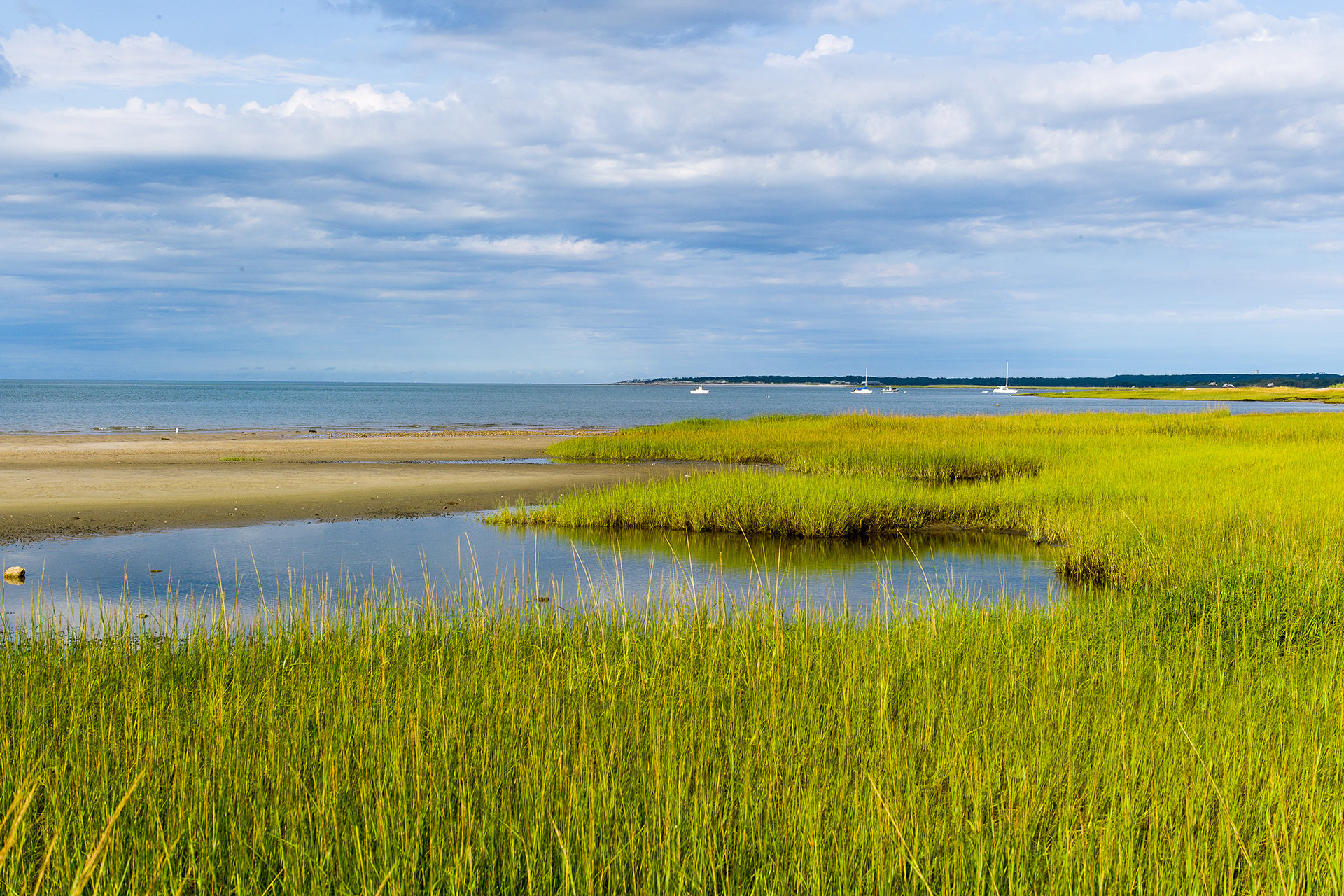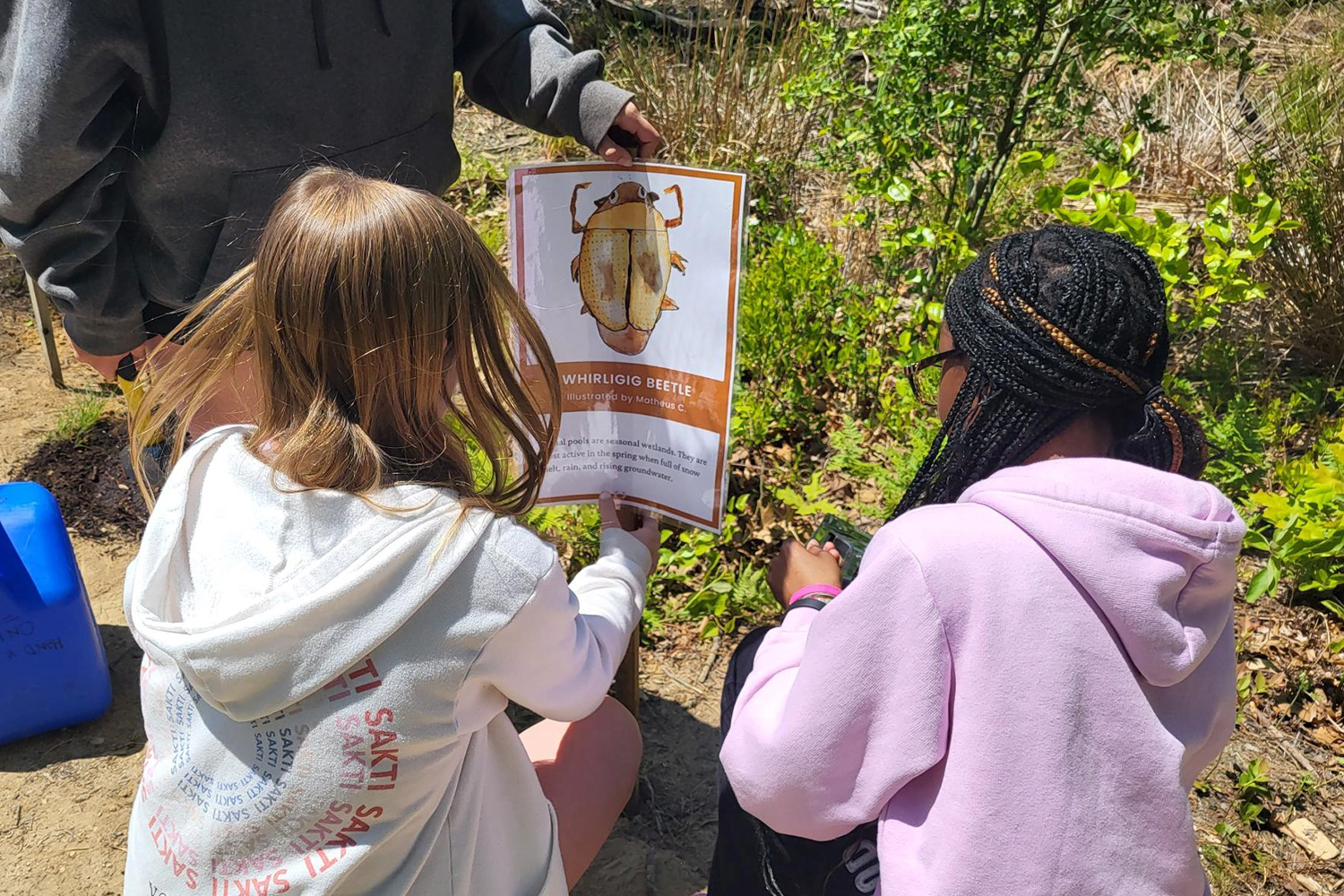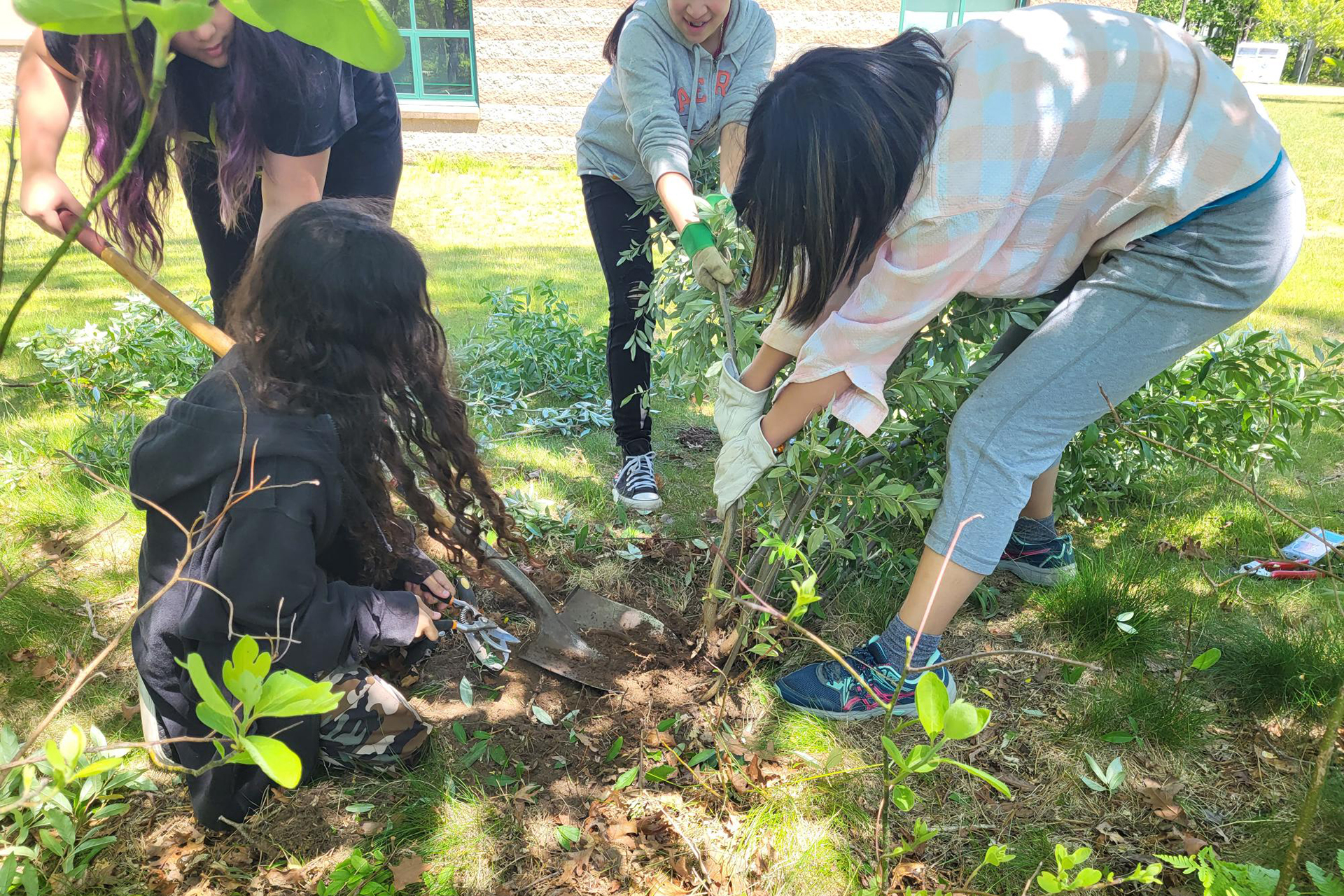This spring Barnstable Intermediate School seventh graders descended upon their school’s vernal pool, installed some years ago as part of Long Pasture’s Living Lab program, to complete a semester-long series called Rivers to Sea, a Mass Audubon statewide curriculum focused on watershed protection.
Through the first half of the year, Mass Audubon Cape Cod educators presented five classroom lessons—first introducing the concept of watersheds and their connection to ponds, rivers, and oceans—and then using local vernal pools to help students become familiar with the animals that depend on them to complete their life cycles.
Vernal Pool Field Science
The seventh graders spent a full day at Long Pasture to compare the sanctuary’s vernal pools with their school’s—noting differences in the macroinvertebrates they found, such as caddisfly and dragonfly larvae, and comparing water quality. “They really enjoyed how the water changed color when we tested the pH!” notes educator David Shapiro. He says students were also struck by how many more creatures could be found in a vernal pool, such as frogs’ eggs and insects.
Taking Action
The Rivers to Sea program concluded with students deciding on an action project to protect their local watershed. Educator Denise Steiger says they met Kelly Barber, director of Land Stewardship at the Barnstable Land Trust, who joined the students for the action project, which included cleaning up the edges of their school’s vernal pool—removing invasives, such as non-native honeysuckle and Spotted Knapweed—and planting native Highbush Blueberry, Joe Pye Weed, and Butterfly Weed.
“We thought this might take the entire class period,” David says, “but before we knew it, the plants were gone!” The students then erected informational signs they created highlighting some of the vernal pool’s inhabitants.
Denise says having the chance to spend a full semester with a total of four classes—84 students in all--allowed educators to remain engaged with the students and to build up to the idea of what young people could do, even about big problems, such as pollution or climate change. “The action project at their vernal pool meant that they could make a difference right in their backyard.”
Stay Connected
Don't miss a beat on all the ways you can get outdoors, celebrate nature, and get involved.





